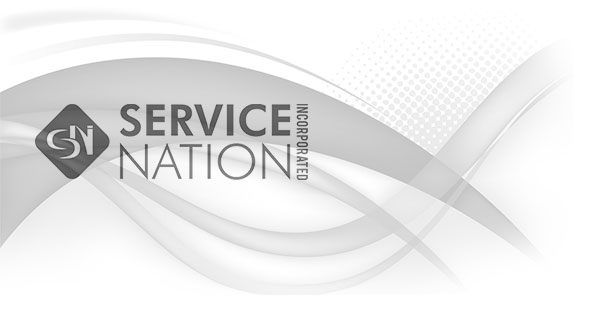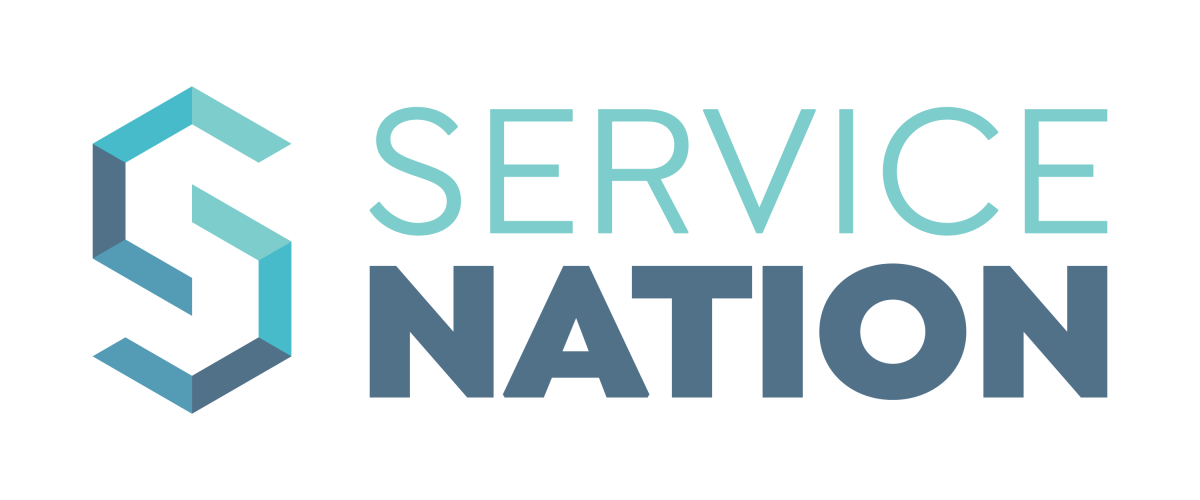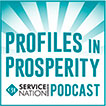David Heimer: Well, congratulations. Start us off at the beginning. How did you become a plumber?
Bob Larson: So, when I was growing up, my dad was a baker and I actually worked in his bakery, cleaning up after work every day. And then when I got a little older, he hired me to come in, in the mornings and help fry donuts and that kind of stuff. And I said, man, this is a job I do not like doing because you have to get up real early in the morning and you do the same thing over and over every day. So I kind of decided at an early age that being a baker is not what I was that interested in. When I was in my late teens, I met a girl from California, and she said, “why don’t you come down and visit me?” And so I moved to Southern California, chasing girls. A friend of mine got me a job in Los Angeles, working for a pump company. Then I decided that I needed to finish my college degree. And since I had pump experience, they hired me as a part-time student in the plumbing maintenance shop. So I actually went to college to become a plumber, which I don’t think is the standard route.
David Heimer: Yeah, not the standard route. So you were a plumber while you went to college and then you graduated and just continued on as a plumber
Bob Larson: Yep. They hired me full-time as plant maintenance after I graduated. And then I got married and had kids in California, but being a Northwest guy, I kind of liked the mountains and the oceans and everything. Not that they don’t have those in California. But I like the weather here, and I didn’t want to raise my kids in Southern California. So I finally talked my wife into moving up North, and I went to work for a couple of other plumbing outfits, and then ended up starting my own business when things kind of slowed down a little up here.
David Heimer: Yeah. So what year was that?
Bob Larson: 1992.
David Heimer: You’ve had amazing growth over the last few years. When I look at your information Service Nation Alliance, your sales have grown at a compounded annual growth rate of about 20%. How have you managed to get that growth?
Bob Larson: One Thing I know for sure is, it’s not me. I remember listening to Matt Michel’s audio presentation on how contractors go broke. Oh, the impoverished craftsmen, that’s what it was.
David Heimer: Yeah. That’s right, it’s a great story. Yeah.
Bob Larson: And it described my business to a T for the first 10 or 12 years or so. I finally got to the point where I had to refinance my house to pay some bills. And I said, this is not fun. So actually Bank of America put on a seminar here, locally, for contractors. Because they know that a lot of contractors are basically idiots when it comes to running a business. So I went to that and I learned a lot from that. You know, the typical young male contractor mindset is that you want to figure everything out for yourself and never ask for help. I got to the point where I realized that getting help is a good thing. Frank Blau came into town and I went to one of his seminars, and that helped change my thinking a lot. And I got involved with PHCC. The Early years when Matt Michel was just doing Comanche Marketing, I was an avid listener to his marketing stuff. And then when he started the Roundtable, I said, I’m going to follow along with this guy and see what he does. And the Roundtable has made a huge impact on my business.
David Heimer: Good, How so?
Bob Larson: Just resources, marketing information, how to run a business. You know, the biggest thing about the Roundtable for me was, the fact that you have a bunch of people who are doing it and doing it well, that are willing to share how they did it. Kind of like, I guess what I’m doing now. We’ve heard that successful people never stop learning. The question is what are you learning and who are you learning it from? So the Roundtable is just full of – and PHCC also, is full of great people that are willing to help and know what they’re doing. And it’s been a great resource.
David Heimer: Yeah, I mean, It’s true that successful people never stop learning. And the other thing is, successful people always are learning from other people they’re networking, they’re interacting. None of us is an island. We’re all sort of in this thing together. And it’s just so much easier to travel down the road to success with other people. And you’re not just a person that travels along that road. You’ve also gotten involved. You teach plumbing, you talk to other plumbers, you try and help them with their businesses. You’re involved in a lot of ways, aren’t you?
Bob Larson: Yes, I am. In Washington a little about 10 years ago now, they adopted the mandate that you had to have continuing education to renew our plumbing license here. And so I was already teaching with an organization that did apprenticeship training. And so they said, well, why don’t we just sign you up to do some continuing ed, as long as you’re already teaching some classes. So I started doing that, and I found that, if you want to learn a subject, then teach it. Because one of the things is, the journeyman test here in Washington. It had like a 70% failure rate. And when I started teaching this code class, I probably would’ve flunked the journeymen test, because I’d done it, you know, 12 years earlier, and hadn’t stayed up on everything. Having to teach the subject helps you learn. And so, just by doing that, it’s pretty much – I teach a code class the first Saturday of every month. I have one tomorrow, in fact. But by doing that with a bunch of plumbers in the class, it’s great for networking. And I’ve kind of built a reputation as kind of a go-to guy for answering questions, especially about taking the journeymen test here. In fact, I even do private tutoring for people that are having problems passing the test.
David Heimer: So you talk kind of in generalities about your growth. You joined Service Roundtable, you’ve joined Service Nation Alliance, you’ve talked with other contractors. Is there anything that you can think of, specifically, that you would say, you know, here’s one of the top five or six things that I did that really made a difference in my business?
Bob Larson: A lot of it has to do with outsourcing and getting help from people. I would just get overwhelmed with all the things that a business owner needs to do. And so, a lot of it, I would just kind of shove it off to the side and take the ostrich approach, sticking my head in the sand.
David Heimer: Bury that stuff, and maybe it won’t come back up.
Bob Larson: Exactly.
David Heimer: What would be an example of something that you outsourced, that ended up helping you out?
Bob Larson: Well, one thing is, I hired a local guy for marketing that takes care of my website and stuff like that. One of the big ones though is, contractor in charge. They are also Roundtable members, and I basically outsource all of my bookkeeping, and tax prep to them and they do a fantastic job. I can’t say enough about Lin and Deb.
David Heimer: Yeah. That’s a good one to take off your plate, isn’t it? Some people just like doing that kind of stuff and if they are good at it, fine. But if you’re not, just outsource it. I would guess that your life got a whole lot better and easier after you did that and you felt a whole lot more satisfaction.
Bob Larson: Absolutely. And they also turned me onto the profit first systems. We’ve been using profit first, for almost two years now. And I’ll tell you, my cash flow has never looked better. And I remembered some of the old days when you’re stressing about making the next payroll. That’s a miserable life.
David Heimer: Yes that is.
Bob Larson: With profit first, I don’t really have that issue anymore. And it’s a great place to be.
David Heimer: When I look at your company website, it’s very much about integrity, reliability, competence, and as I mentioned earlier, that phrase, positively affecting lives. From what I know about you and your company, it feels like positively affecting lives, doesn’t just apply to your customers. It also applies to your team. How would you describe your company culture?
Bob Larson: Yeah. Well, positivity is something we stress all the time, and it’s not only customers and our team, but it’s also, like people at the supply house, pretty much, you know, if you stop for lunch, we want to positively affect the lives of the guy behind the counter at McDonald’s even. Not that we do that perfectly, but you know, that’s always at the top of our minds. Positivity versus negativity, because negativity is the default position that a lot of people go to. And it takes effort to be positive, but by being positive, you not only make the people around you make their lives better, but you also make your own life much better, by focusing and striving to be positive. So that’s just a rule of life that I’ve found, that really does Work.
David Heimer: How do you encourage that in your company?
Bob Larson: I’m going to probably get some disagreement with this. But there are companies out there that are very successful. They’re the ones that wear the white shirts, crisp, clean uniforms, and no facial hair, and no tattoos, and all this stuff. And I’ve kind of, I think as far as the niche of plumbers go, I think I’ve kind of appealed to a separate niche from that because we kind of recognize that we’re plumbers, that we get dirty, that we deal with unpleasant issues during the day sometimes. And I just, basically, have accepted that of who I am, as far as what I do for a living, and have attracted people like that to my team. And so we don’t get really super strict. I think there’s a little bit more of a relaxed atmosphere. And I think that just leads to everybody getting along really well. And like last week we’ve all gone go-karting together. We bought an Xbox for the training room and guys hang out after work and play video games and stuff. And we really like each other. It’s just like family.
David Heimer: It’s a great way to be. What else do you guys do to encourage that? You’ve mentioned positivity. You’ve talked about sort of a relaxed environment. What else?
Bob Larson: Well, we stress training a lot. This is from the advice that I’ve gotten through the Roundtable. But we do training meetings every morning and we try to keep it to 15 minutes for most meetings. And then on Fridays, we have our one-hour meeting, where we’ve been listening to Charlie Greer tapes lately. Even though they’re corny, they’re very effective. In fact, the guys were just saying that this morning, that guy is a goofball, but what he says is really true.
David Heimer: It’s a great plug. I’m sure Charlie will appreciate that.
Bob Larson: But In fact, the guys were even saying, because I’ve sent all of my guys, except for the newer ones, I’ve sent them to Joe Cunningham classes in Texas. And I’ve sent all my guys to classes put on by Naveen and Norris and Rheem. So my guys have got to travel around the country, and they talk with other plumbers and other plumbers say, wow! We never get to do that.
David Heimer: So you’ve invested a lot in your team and they appreciate it, I’m guessing. Well, Bob, I really appreciate this. You’ve allowed me to have time that I’ve stolen away from your granddaughter.
Bob Larson: Her name is Riley, and she turns nine months old in two days.
David Heimer: So with the first grandkid, I’m guessing, you celebrate every month’s birthday for the first year?
Bob Larson: Something like that. Yep.
David Heimer: Congratulations, that’s wonderful stuff. Thank you so much for spending this time with us. I love hearing about your business, and what you’ve done with it, and all the people that work for you that have grown with you. I’m looking forward to hearing where things are in the future. And all this continued growth is exciting and good, so congratulations.
Bob Larson: Thanks, Dave. I’m honored that you asked.
Outro: We’re always looking for good ideas and interviews for our podcast. If you have an idea or maybe you think you should be interviewed, just shoot an email to, profilesinprosperity@serviceroundtable.com. That’s profilesinprosperity@serviceroundtable.com. If you think what we’re doing has any value, it would be very helpful if you would give us a great rating on iTunes. Thanks for your support. Hope to see you again soon. Bye.





 (877) 807-0869
(877) 807-0869 Member Login
Member Login

